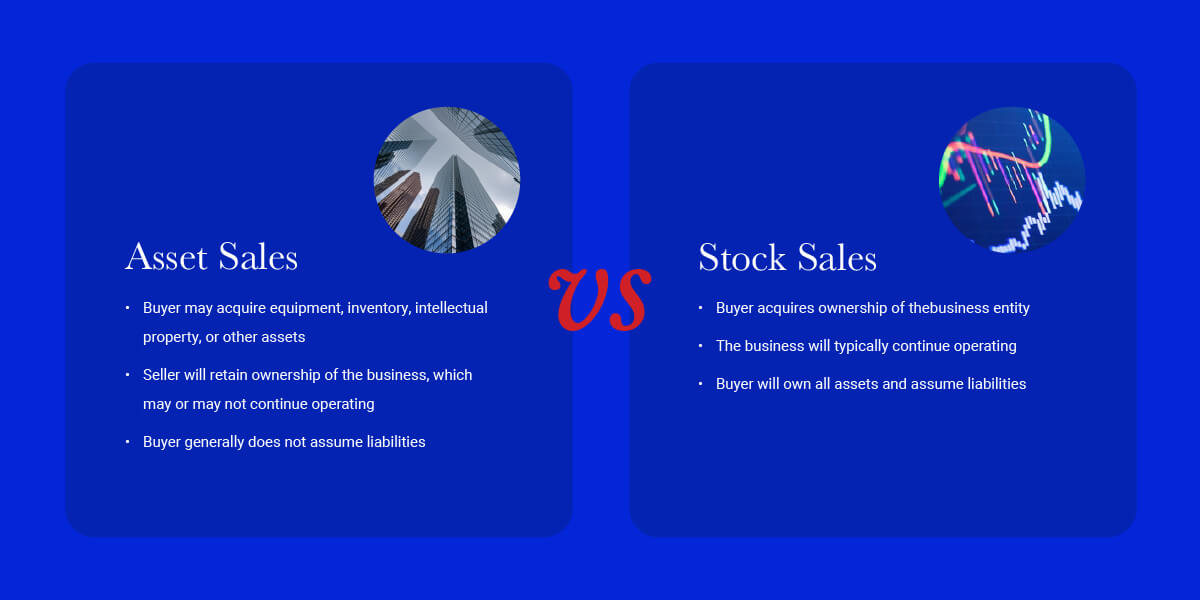Tysons Corner Business Purchase and Sale Attorneys
"I had an excellent experience with Fox & Moghul. From the initial consultation to the final implementation, they guided me every step of the way with clear, actionable advice. They took the time to understand my unique business needs and provided tailored solutions that exceeded my expectations."
Protect Your Investments Contact Our Team Today
The use of the Internet or this form for communication with the firm or any individual member of the firm does not establish an attorney-client relationship. Confidential or time-sensitive information should not be sent through this form.
I have read and understand the Disclaimer and Privacy Policy.
Lawyers for Asset and Stock Purchases and Sales in Tysons Corner, VA
Major business transactions can be defining moments for the companies involved and for the entrepreneurs, shareholders, and other stakeholders. When purchasing or selling a business, it is important to understand the available options and the steps that will need to be followed. These issues can be significant concerns for business owners in Tysons Corner, a major commercial hub in Northern Virginia. An experienced lawyer who understands the legal and financial issues involved in these transactions can provide the assistance needed to complete asset and stock purchases and sales.
At Fox & Moghul, our business law attorneys provide representation through every stage of buying or selling a business, from initial structuring of a transaction to post-closing matters. These transactions often involve nuanced legal and financial decisions that may affect the transfer of ownership, the assumption of liabilities, and other factors. By providing dedicated legal support, we can help minimize risk while taking advantage of the opportunities that are available.
Attorneys for Business Sales and Acquisitions in Tysons Corner
Our seasoned lawyers help clients address the legal, operational, and regulatory concerns that may arise during the acquisition or sale of a business. We represent buyers and sellers, and we provide our clients with effective legal guidance to help them achieve their goals. The attorneys at the firm have extensive experience representing companies across multiple sectors, including technology, healthcare, government contracting, real estate, consulting, food and beverages, and retail.
Clients can benefit from the experience we have gained through years of work on behalf of our clients. Our attorneys have been recognized with multiple awards, including being peer-nominated by the prestigious VA Lawyers Weekly as Go To Lawyers for Business Litigation for two straight years. Attorney Faisal Moghul has also been honored as a Fellow of the American Bar Foundation.
Our attorneys regularly provide continuing legal education (CLE) seminars to teach fellow lawyers about business law issues, including a presentation titled "Top 10 Common Mistakes in Small Business Sales and Purchases." With our knowledge and experience in business transactions and our recognition as leaders in the field, we can provide the legal help needed to complete business purchases and sales successfully.
Excellence Always
Understanding the Structure of Business Transactions: Asset vs. Stock Sales
When buying or selling a business, one of the key decisions will be whether the transaction will be structured as an asset purchase or a stock (or equity) purchase.
Asset Purchase Transactions
In an asset purchase, the buyer acquires specific assets of the business, such as equipment, inventory, intellectual property, real estate, and contracts. The seller retains ownership of the corporate entity, which may continue to exist after the transaction. These transactions may be more complex, because multiple types of assets will need to be assigned and transferred. However, a buyer will have more flexibility to acquire specific assets and avoid assuming certain liabilities.
Key characteristics of asset transactions include:
- Ownership Transfer: Title to individual assets is transferred through bills of sale, deeds, or assignment agreements.
- Liability Management: Buyers generally avoid assuming unwanted liabilities unless expressly agreed upon.
- Tax Treatment: Buyers may benefit from a stepped-up basis in the acquired assets, which can lead to future depreciation and amortization advantages.
- Third-Party Approvals: Certain contracts or leases may require the consent of the other party for assignment. Third-party consent may also be required when transferring licenses or permits.
- Employee Matters: Employment relationships typically do not transfer automatically; the buyer must extend new offers, and employment contracts may need to be renegotiated.
- Goodwill and Intangibles: A value may be placed on acquired goodwill, affecting the purchase price.
Stock Purchase Transactions
In a stock sale, the buyer acquires the ownership interests (stock or membership units) of the target entity. The business continues to operate with all its assets, liabilities, and contracts intact. These transactions are often less complex, since a buyer will acquire all of a business's assets and liabilities.
Key characteristics of stock transactions include:
- Ownership Transfer: Equity ownership changes hands, but the company remains the same legal entity.
- Assumption of Liabilities: All existing liabilities—known and unknown—generally remain with the entity and are thus assumed by the buyer.
- Tax Considerations: Because the buyer will inherit the existing tax basis of the business, their tax treatment may be less favorable. Sellers may prefer this type of transaction due to the way capital gains taxes are handled for long-term gains.
- Continuity of Operations: Customer contracts, licenses, employee agreements, and intellectual property rights remain in place, reducing disruptions that could affect a business's operations.
- Due Diligence: Because all liabilities transfer with the company, buyers must conduct rigorous due diligence.
Navigating Legal and Regulatory Considerations
Every transaction is unique, but several recurring legal issues must be addressed to ensure that a purchase or sale can be completed successfully. These issues may include:
Employee Contracts and Benefits
Any existing non-compete agreements or confidentiality agreements may need to be assessed. A buyer may need to take steps to ensure that key personnel are subject to enforceable restrictive covenants so that they can preserve the value of the business. Buyers may also need to determine how accrued vacation, retirement benefits, or bonuses will be handled for current employees.
Intellectual Property (IP) and Trade Secrets
A seller must establish clear ownership of patents, trademarks, copyrights, and software. Assignments must be properly recorded with the United States Patent and Trademark Office (USPTO) or other agencies. In asset purchases, IP must be specifically transferred or assigned. In a stock purchase, IP will typically be transferred automatically.
Due Diligence and Risk Assessment
A buyer may need to review financial statements, tax returns, and debt schedules. They may also evaluate employment practices, litigation history, and regulatory compliance to ensure that any hidden risks are identified. In some cases, environmental assessments may be necessary.
In asset purchases, due diligence may focus on the value of specific assets and liabilities. In stock purchases, due diligence must be more comprehensive, reviewing all aspects of a business and uncovering any undisclosed liabilities.
Contact Our Tysons Corner, Virginia Business Transaction Lawyers
When planning to buy or sell a business, the right legal guidance can protect your investment, streamline the process, and position you for long-term success. Contact our Tysons Corner business sales and purchases attorneys at 703-652-5506 to schedule a consultation.







 Attorney Profile
Attorney Profile


